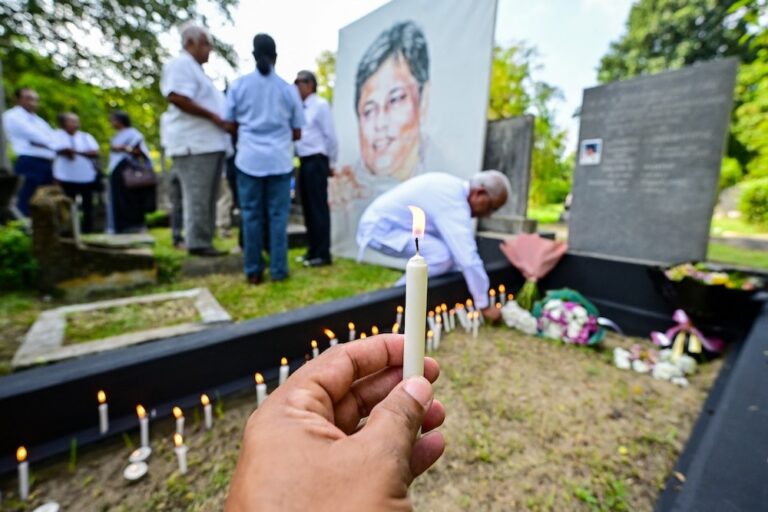(FMM/IFEX) – The following is an FMM press release: New censorship laws will lead to an authoritarian rule in Sri Lanka Free Media Movement is perturbed by the imposition of a new set of rules and regulations to curb freedom of expression under the pretext of combating the developing war situation in Jaffna. The Government […]
(FMM/IFEX) – The following is an FMM press release:
New censorship laws will lead to an authoritarian rule in Sri Lanka
Free Media Movement is perturbed by the imposition of a new set of rules and regulations to curb freedom of expression under the pretext of combating the developing war situation in Jaffna. The Government has declared that its aim is to mobilize the country on a war footing. According to these rules and regulations, which were announced by state electronic media, not only war-related news but also news and comments on the government, the president, the judiciary and the constitution has been brought under the censorship regulations.
Free Media Movement cannot understand how and why these subjects are related to the developing war situation. Just because government forces, which are fighting the Liberation Tigers of Tamil Eelam, are in a difficult situation in Jaffna, censoring the right to criticize the government’s political activities cannot be justified. This declaration of war will be in force for the coming three months. Sri Lanka will have general elections in August, i.e., in the next three months. In such a decisive situation, violating people’s right to be informed is, in FMM’s opinion, an unhealthy development. Furthermore these rules and regulations can be used to ban trade union action as well as public meetings and campaigns. That could lead to more restrictions on freedom of expression in Sri Lanka.
The main reason given by the government to explain the imposition of war news censorship is to prevent war secrets from being published and to thereby help government forces to win the war. But since last December, government forces have suffered a series of defeats in spite of the censorship of war news. It was FMM’s opinion from the beginning that war news censorship has nothing to do with the actual war situation but is instead a part of the government’s political project. FMM also views the declaration of war at this time as an expansion of the government’s repressive political project. New censorship regulations clearly cover non-military matters to a great extent. They allow the government to ban media institutions and imprison journalists who will not comply with these anti-democratic regulations. FMM expresses its apprehension and notes that curtailing the political democracy and taking away people’s fundamental rights through these actions may lead to a more authoritarian state in Sri Lanka.
Sunanda Deshapriya
Secretary, FMM
04.05.2000.
ANNEX
Excerpts from Sri Lanka Broadcasting Cooperation Bulletin One at 6:45 a.m., 4 May 2000
An extraordinary Gazette notification was issued at midnight (on Wednesday 3 May 2000) banning all activities that could harm national security and announcing the Government decision to place the country on a war footing. The president, under chapter 40 of the Public Security Act, has put the regulations into force. According to these regulations, the president can appoint a competent authority for an essential service.
Regulations have been imposed to control meetings, processions, publications, weapons and the right to enter any place. The publication of any material that could harm national security may be banned. The printing, sale and distribution of certain newspapers that contravene national security can also be stopped.
Government by law could take over printing presses which contravene these regulations. Persons involved in such activities can be arrested. Destruction of property and holding illegal meetings are also punishable offences. Punishment will be handed down to those who insult the government, the president, the constitution or the judiciary. Displaying banners and posters, distributing leaflets and possessing photographs and maps that could threaten national security are also banned. Strikes are banned under the Essential Services regulations. It is also prohibited to force persons to strike. The government has powers to ban the organisations concerned and close down their bank accounts.
The Gazette notification comprises 101 pages. The government has decided to stricly implement these orders and regulations.


